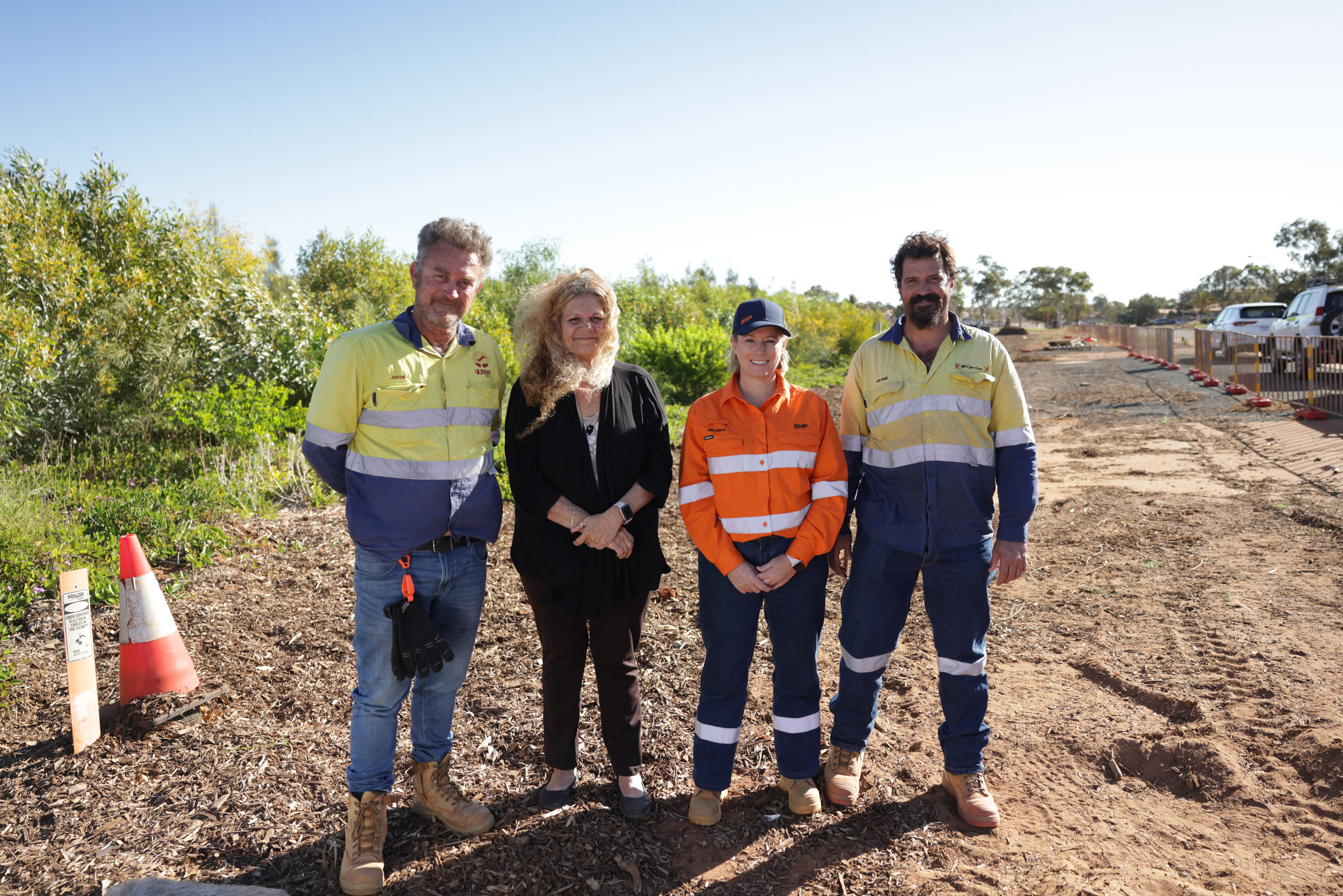BHP knows the nature of its operations can have environmental impacts, and it understands the responsibility to minimise them at every stage of our operational activities.
It has partnered with Curtin University and Greening Australia to trial vegetation barriers to capture dust and improve air quality in the West End of Port Hedland as part of BHP’s Pilbara Air Quality Program.
Phase one, which involved around 80,000 seedlings planted, was recently completed with an additional 80,000 seedlings scheduled for phase two which will begin in a few months.
Over the years as the plants grow and develop, they will create a dust barrier between the operations of our business and the community.
BHP has partnered with Indigenous-owned and operated nursery, IBN Services in Port Hedland to provide the specifically selected plants for the project.
“This is an important contract for our business. We’re very involved with the land and the country, and we want to help look after it,” Evelyn Kroczek, Manager IBN Services said.
In addition, Indigenous-owned landscaping company, Yurra, have been contracted to manage ground works.
Justin Bryne, Manager Yurra, said: “We’ve worked with Greening Australia to formulate the design and look at the plant mixes and what we think will grow well. We’re also providing the local supervision as well as the project management.”
If these trials prove successful, vegetation barriers could be strategically used across the West End and adjacent to our other operations to capture dust from industry and natural sources and help improve overall air quality.


